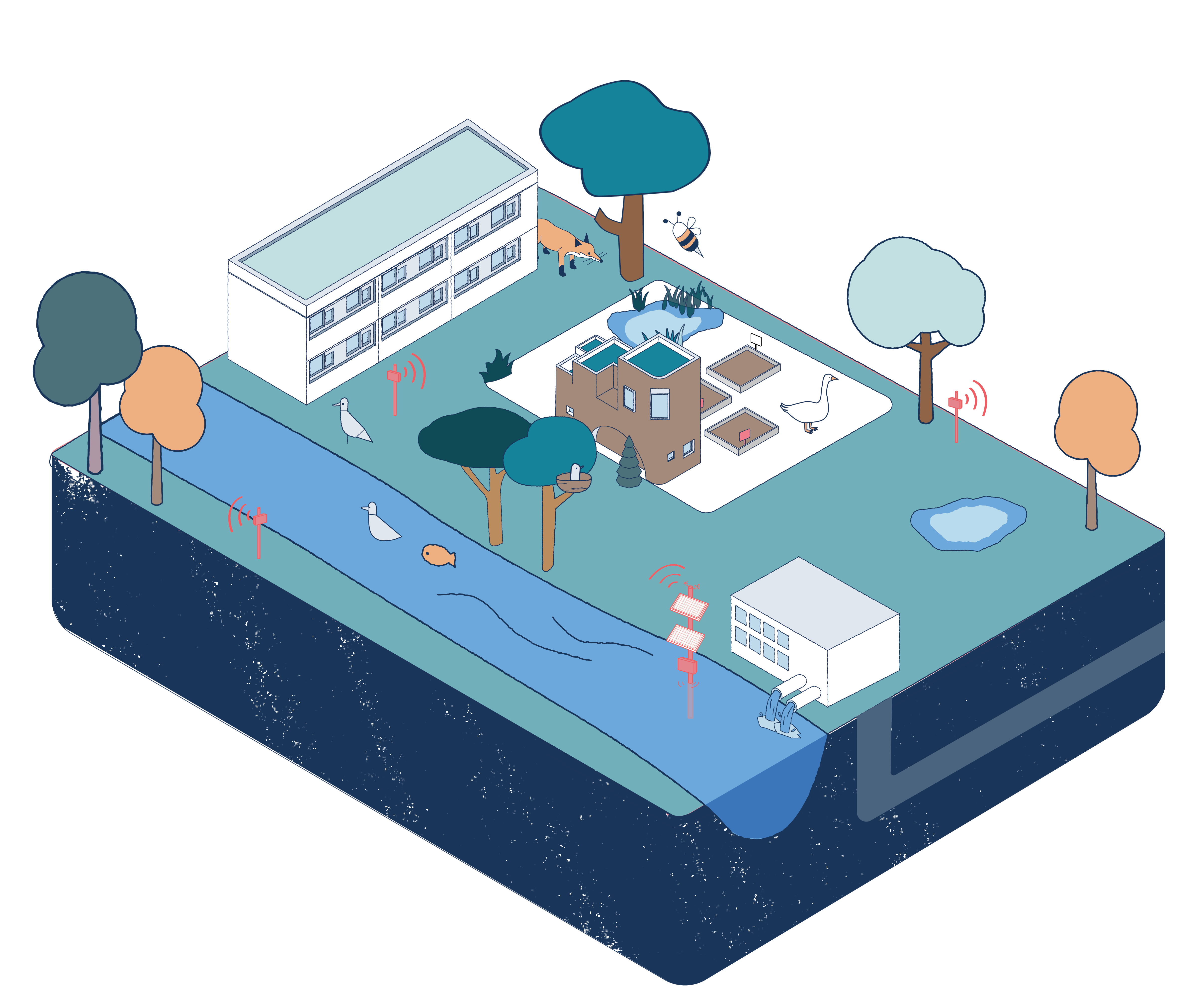Pioneering services, spaces and urban infrastructure could be developed to respond to rapid health shocks or enable preventative health measures in the future, through use of valuable wastewater monitoring data, finds a new study by professional services firm Arup.
Wastewater monitoring or wastewater-based epidemiology (WBE) offers a new and honest source of health data that public health practitioners could utilise, alongside current datasets to monitor impacts of healthcare practices or predict future trends.
 The COVID-19 pandemic has reminded us of the importance and impact of public health. In these unprecedented times, governments across the world have been looking to a new source of health data to track the viral spread: wastewater.
The COVID-19 pandemic has reminded us of the importance and impact of public health. In these unprecedented times, governments across the world have been looking to a new source of health data to track the viral spread: wastewater.
Through monitoring biomarkers, found in sewage, wastewater-based epidemiology (WBE) can give an indication of human health. Since humans can begin secreting biomarkers into sewage days before COVID-19 symptoms develop, WBE has been used, throughout the pandemic, as an early warning system to identify viral hotspots before this was visible in clinical data.
Combined with other data sources, WBE can begin to tell contextual and comparative stories about our health across different geographies and demographics.
Wastewater: a reflection of our health report published by Arup with input from academics at Bath and Bangor universities, UK Centre for Ecology & Hydrology in addition to Devon County Council, explores what the future for WBE might hold, through a series of speculative scenarios outlining potential use cases for WBE data and their ramifications.
Vikki Williams, Arup’s UKIMEA Digital Water Leader, said: “There is potential for WBE to extend its role and impact as part of longer-term cross-sector approaches to urban health and wellbeing. Our aim is to create the space to explore these challenges to help shape tomorrow’s solutions and start a conversation about how we might shape WBE and use data to achieve beneficial outcomes. Developing speculative scenarios is not about predicting the future, but about developing a vision for how WBE can support our broader health and wellbeing in the future.”
The report finds community health data can enable public health authorities and other municipal partners to take action to improve urban places and systems to increase health outcomes for a given area. Stitching together data sources like areas of food deprivation with nutrition markers from the sewers, can prompt local food growing schemes, diet education and support local healthy food businesses.
Prof. Barbara Kasprzyk-Hordern, University of Bath: “There is a wealth of information about a community’s health locked in wastewater. WBE equipped with cutting edge biochemical tools can unlock this information to enable rapid identification of public health threats (from pathogens to toxic chemicals) and safeguard our communities from natural and man-made hazards.”
Additional key findings within the report include:
- Substance levels can be tracked across the population, taking a granular view of health trends and used to target interventions. The presence of addictive substances might prompt local social support programmes, or signs of antibiotic resistance could inform new prescribing policies or investment in medical research
- Understanding of community mental health status could be achieved through the monitoring of stress hormones, uses of antidepressants or other pharmaceuticals linked to mental health, raising awareness of inequalities, and driving local investment in services and the environment.
- WBE can enable better understanding of environmental pollution from wastewater and the impact on ecosystems through monitoring substances such as chemical pollution originating from pharmaceutical use and household cleaning products, biological pollution (faecal matter and nutrient loading) and environmental DNA (eDNA)
- Data at the population scale, measured within the neighbourhood and at the hospital site can inform projections for health service needs. From fast detection of novel viruses to long-term trends in substance levels, data can inform how health services plan, prepare and deliver care
- Monitoring capabilities at household scale could enable insights into personalised health and connect to tailored and preventative health solutions
Prof Davey Jones, Bangor University, said: “Wastewater is an extremely unbiased way of informing us how society behaves. Our work is only just beginning. Exploring the scenarios within the report allows us to consider whom we are designing for and why, articulate the benefits to users and communities, discuss the potential implications that may arise, the pitfalls that may lie ahead and exciting revelations for the future.”




